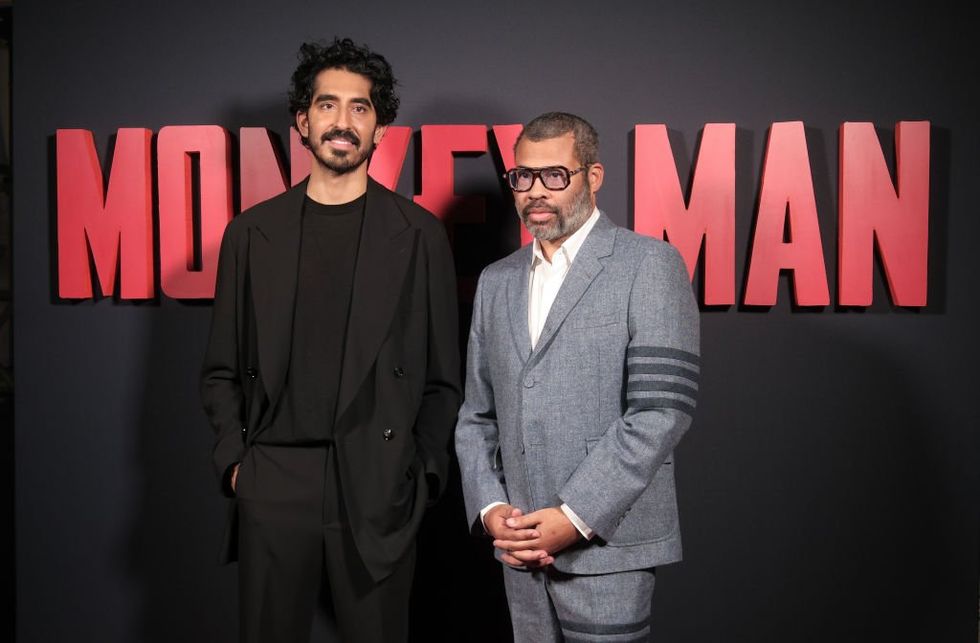
Screenshot from Youtube

The drama around the new action flick "Monkey Man" shows how much power the tech streamers have in shaping culture
Movies aren’t quite high-tech these days, but that doesn’t mean they’re not still at the forefront of the planetary war for technological control of citizens and countries. That’s the lesson underscored by fresh revelations about streaming giant Netflix’s abrupt cancellation of its plans to release the "John Wick"-style action movie "Monkey Man."
It’s a tale unique to the age of digitally driven globalization. British actor Dev Patel, perhaps still best known as the lead in "Slumdog Millionaire," struck gold in 2021 when Netflix bought the worldwide rights to his beat-'em-up thriller, inspired by an ancient Hindu legend, set in the deeper recesses of India’s criminal underworld. But last year, the company balked. The public rationale was an abstract unease about the film’s relation to political issues. However, as the Wrap recently reported, Netflix’s concerns were anything but vague.
The background is bloodless enough. “Netflix is desperately trying to gain ground in India, the world’s most populous country,” the Wrap noted. “While Amazon has managed to defend its share of streaming original content there, Netflix’s share of demand in India has slid for the last three years and accelerated through most of 2023,” dropping “from a high of 41% in January 2023 to 30% in October.”
The stomach-turning prospect of further losses spoiled Netflix’s appetite for anything that might risk poorer performance. "Monkey Man’s" villain just happens to bear more than a passing resemblance to Narendra Modi, India’s widely popular Hindu nationalist prime minister, currently enjoying his tenth year in office.
But here’s where things get complicated. After the film’s standing-O reception at South by Southwest, blowback about its political sensibilities swiftly began in America — not because of any possible insult to Modi and his Hindutva beliefs but because of a perceived proximity of Patel himself to the ideology, which is coded in the woke West as historically “problematic.”
“Patel’s character sometimes uncomfortably falls into a similar category as [prominent Hindu monk and minister Yogi] Adityanath and Modi,” the Wrap cautioned, citing a negative post-South by Southwest review scolding “the language and imagery adopted by Patel’s character” for falling “discomfortingly [sic] in line with Hindutva itself.” The Wrap dutifully echoed that criticism, albeit parenthetically, noting that “the stories that inspired Patel, and his character, also have a queasy history.”
What was Netflix bothered about: "Monkey Man’s" oblique dig at Modi or its apparent sympathies for his theological-political convictions? All of the above, most likely: focused obsessively on outperforming its megacorp digital rival in the world’s largest single-country market, Netflix risked getting caught in a crossfire of flak — woke backlash from Westerners and ostensibly theocratic outrage from Hindutva Indians defending the Modi regime.
And that doesn’t even consider the film’s inclusion of “trans” characters.

So, how did "Monkey Man" make it out of sensitivity hell? Completing the intersectional circuit, Patel was rescued by Jordan Peele, the near-universally acclaimed black auteur (whose own shingle, as they say in Hollywood, is coincidentally named Monkeypaw Productions). Peele, whose "Get Out" and "Us" elevated him to a bankable plane of cultural cachet virtually beyond criticism, took "Monkey Man" as he found it — as a high-octane passion project that would deliver for mainstream viewers.
“I was instantly blown away by the cinematic generosity of his film,” he gushed. “I watched it alone but could hear the audience’s reactions in my head. I knew the movie demanded a theatrical run.” Peele ran, not walked, to Universal Studios, a less fussy, more old-school stalwart hip to “how much we love audience-pleasing genre films that come from unexpected perspectives.”
In other words, Peele cannily recognized what’s obvious to anyone capable of not overthinking it: "Monkey Man" is not propaganda but art, big-time art, made by a proper artist, aimed at more or less ordinary people. But Peele also picked up on what’s a little less obvious nowadays but at least as necessary: Art like "Monkey Man," capable of broad reach and relevance, will die out if gatekeepers insist on seeing it as either propaganda or at risk of being seen as propaganda.
Understandably, this worry has become an obsession today — after all, we are in a global digital and spiritual war, and propaganda, often in subtler forms, is a primary weapon in that war. But at a time when the nature of the present war concerns the capability of the would-be winners to technologically control our very experience of reality, the ability of billions of ordinary people to process the overwhelming situation unfolding around us depends in great measure on art that soulfully unites and reflects on both the topical and the timeless. Despite noisy hype that the AI revolution will render all previous media irrelevant, the truth is that televisual tech still provides an unparalleled medium — in terms of reach and relevance — for artists to commune with audiences in a shared creation and contemplation of the mystery of our human being.
I’m willing to stipulate that sounds like a lot more than what a violent, gritty flick like "Monkey Man" brings to the table. On the other hand, life is violent, gritty, and a lot more besides. Our suffering defines human life — why we experience it, what we make of it, and how its profundity in the deep crucible of our hearts might draw us ever closer to God according to His incomprehensible will. The disenchantment of art through today’s wartime obsession with morphing all content into propaganda looms large in the spiritual war entangled with our digital one. As bad as it is for entertainment to become the plaything of politics, the greater peril is much more brutally ironic: that, driven by fear, we forget altogether how to make art, without which our fears rush toward us unmediated, from all directions, without mercy.
Monkey Man | Official Trailer 2 youtu.be
James Poulos
BlazeTV Host